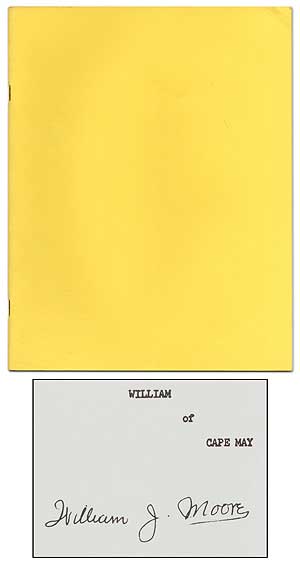[Cape May, New Jersey: Albert Hand Co., 1972].
Sold
Softcover. First edition. Quarto. 35, [3]pp. Author's signature in facsimile. Stapled unprinted yellow wrappers. Wrinkling to the rear wrap and last few pages, and a touch of oxidation on the staples else fine. Locally published autobiography, undated but presumably prepared for his 100th birthday celebration in 1972.
Moore was born in West Chester, Pennsylvania in 1872, the son of freed slaves (in an autobiographical sketch he noted that four of his great grandparents were of African descent, three were of Native-American descent, and one was white). He lived happily enough in this relatively tolerant and predominantly Quaker town, and later attended and graduated from Howard (then known as Howard Normal School) in 1892. Upon his return from college Moore became the first Black teacher in West Cape May. Working summers at the local country club and golf course beginning in the earliest days of the 20th Century, Moore became, almost by default the club's tennis instructor, and by doing so became, according to at least a couple of sources, the first African-American tennis pro in the U.S. He continued to teach both school and tennis for more than half a century.
On Moore's 100th birthday (which he attended on a stretcher because he had just broken a bone playing tennis a few days earlier) the tennis courts in Cape May were renamed the William J. Moore Tennis Center. He died about a year later in 1973. At the time of his death he was the oldest living graduate of Howard.
The history of slavery in Cape May is interesting. The town was (and is) a prominent vacation spot, particularly for Southerners. Located below the Mason-Dixon Line at the southernmost tip of New Jersey, Cape May's residents maintained a tradition of owning both African and Native American slaves from the earliest days of its founding by whalers in the mid-1600s. The adjoining town of West Cape May was both a stop on the Underground Railroad, and became a refuge for both freed and escaped slaves, and is one of the earliest predominantly black communities in the U.S. Harriet Tubman reportedly worked as a domestic at Congress Hall, one of the grand hotels in the city of Cape May that continues to operate to this day.
*OCLC* locates no copies of this autobiography.
Item #409965



